Realistic Eye Drawing Step by Step Easy
Hey everyone! This tutorial will hopefully help you to draw a realistic eye. If you want a more in-depth video tutorial for this process, just click here to be notified when it's ready!
Recommended Drawing Tools:
• General's Charcoal Pencil 6B
• Mechanical Pencil with HB and 4B lead
• Tombow Mono Zero Eraser
• Posca Paint Pens (White 0.7mm)
• Old makeup brushes for blending
Here's how to draw an eye
Step 1: Make sure you have a good reference photo.
A good reference photo is essential when drawing a realistic eye. It helps you to determine the right shape and size of the eye, as well as the placement of the features and reflections.
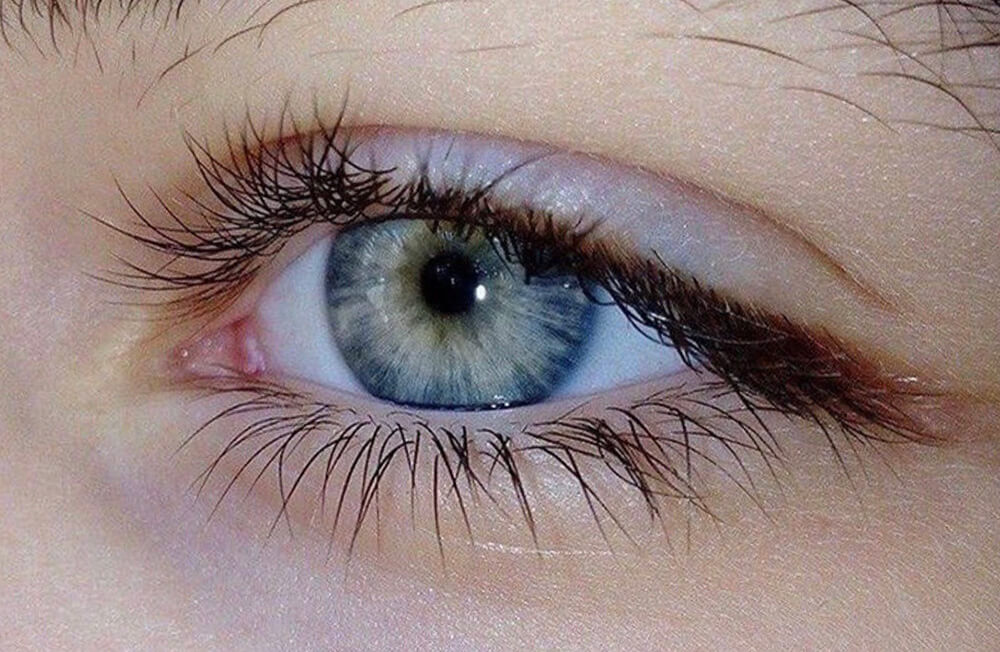
Step 2: Sketch a light outline of the eye.
Start your drawing by lightly sketching an outline of the eye. It always helps me to draw little markers on the left and right, where the drawing is going to start and end—and I always resize my reference picture to be the exact size I want to draw, so I can be sure of getting the correct proportions.
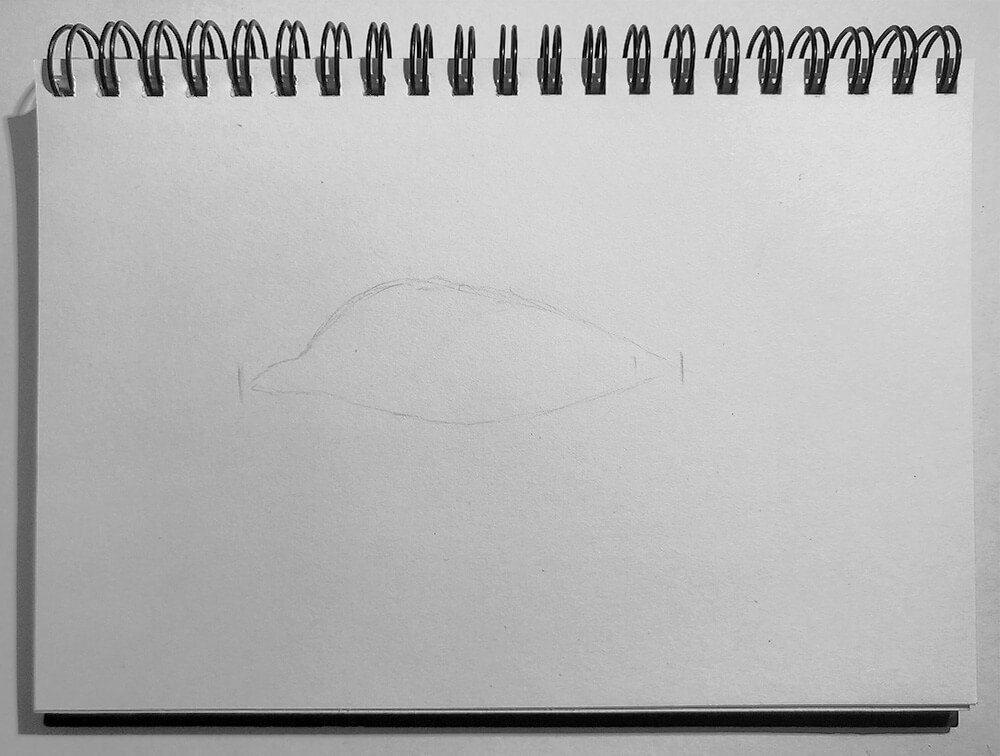
Step 3: Outline the other features of the eye like the eyelids.
Once the central part of the eye is drawn, I add in the rest of the outlines, including the tear duct, eyelid, and eye bags.
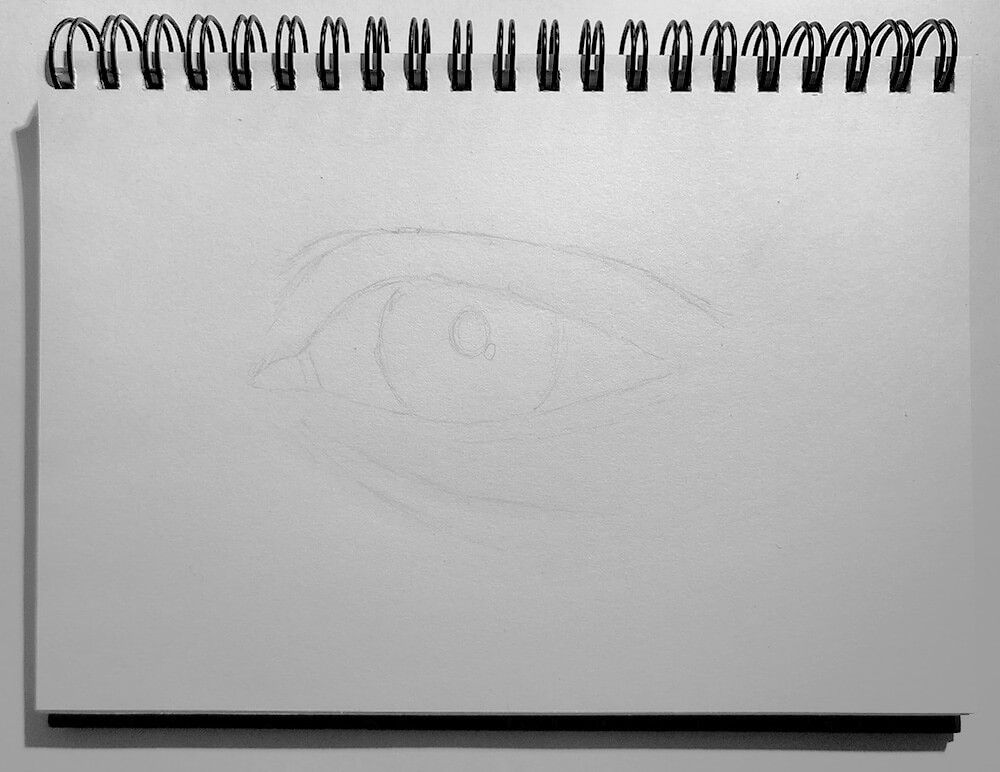
Step 4: Pencil in the darkest areas.
Then I like to go in with a charcoal pencil and put charcoal only in the areas that I want to be the darkest: in the eyelid crease, the shadow under the eyelid, and the pupil and around the iris.
Make sure you only do this carefully, as it is very difficult to erase after you've put down the charcoal.
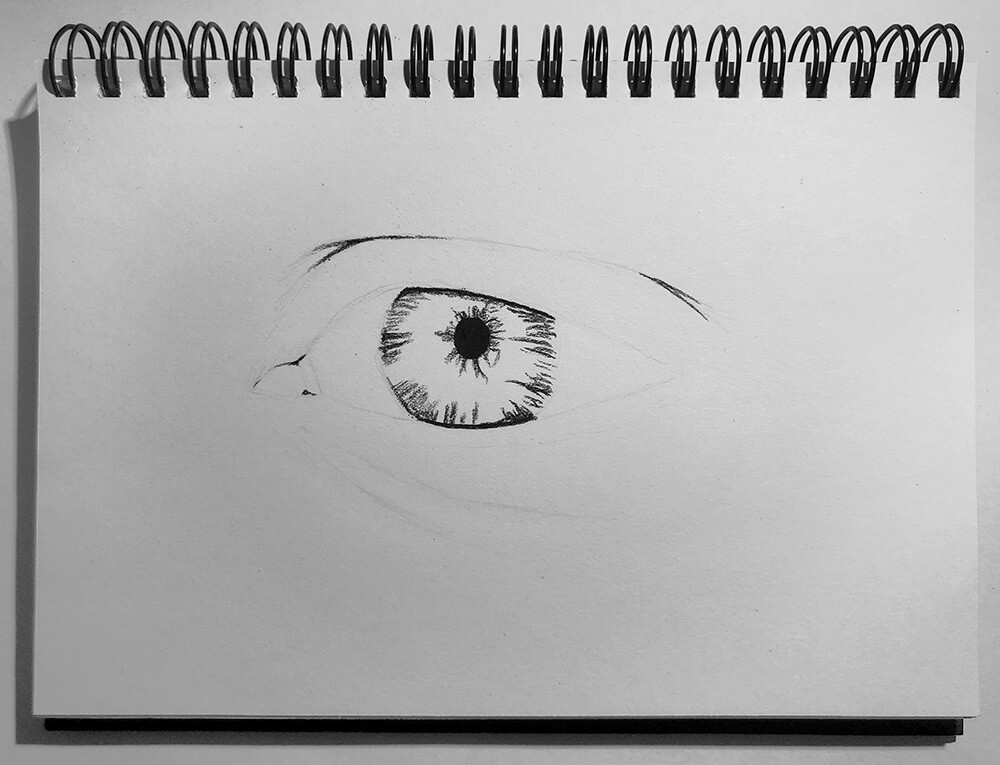
Step 5: Shade the whites of the eyes.
Then I shade the whites of the eyes. This part of the eye is never completely white; eyes do have shadows and dimensionality to them.
For this particular eye, the area next to the tear duct is slightly darker and the opposite corner of the eye is even darker as they are looking slightly down and there is a shadow cast by the eyelashes.
NOTE: I also blended the charcoal and pencil using a small brush. When blending, you want to do it gently and not completely disrupt what you've put down, so just use a light hand and stay within the lines.
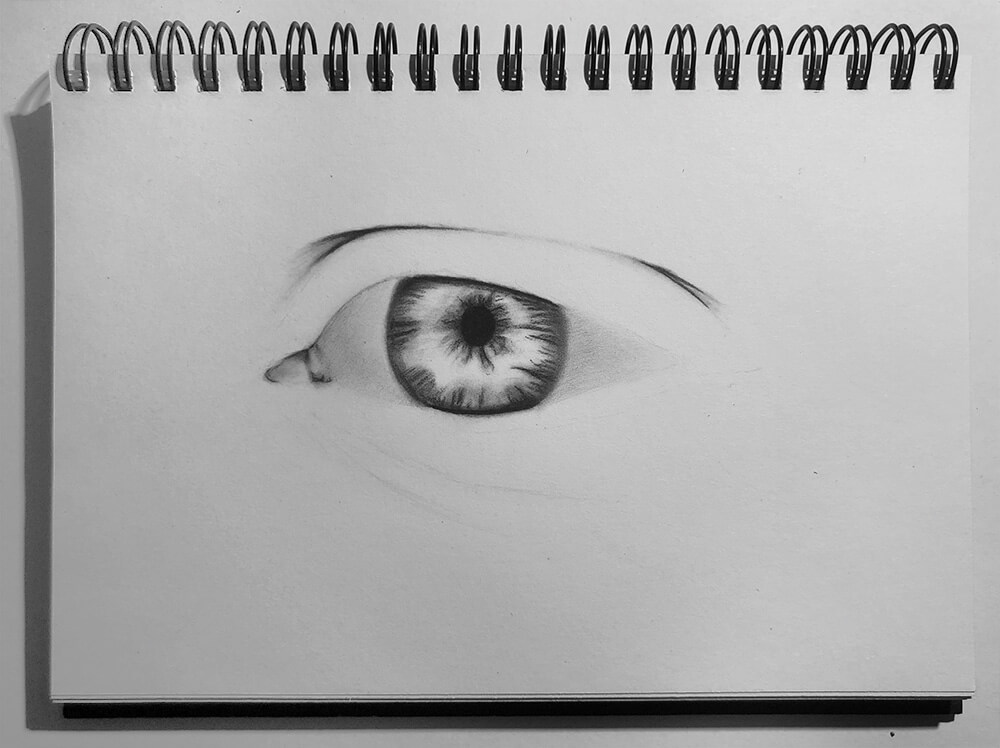
Step 6: Shade the tear duct.
Then I shade the tear duct. It is usually quite dark, but it is very reflective, which we will illustrate once we add the white highlights at the end. I also begin adding details to the iris, which is usually darkest around the pupil and around the circumference of the iris.
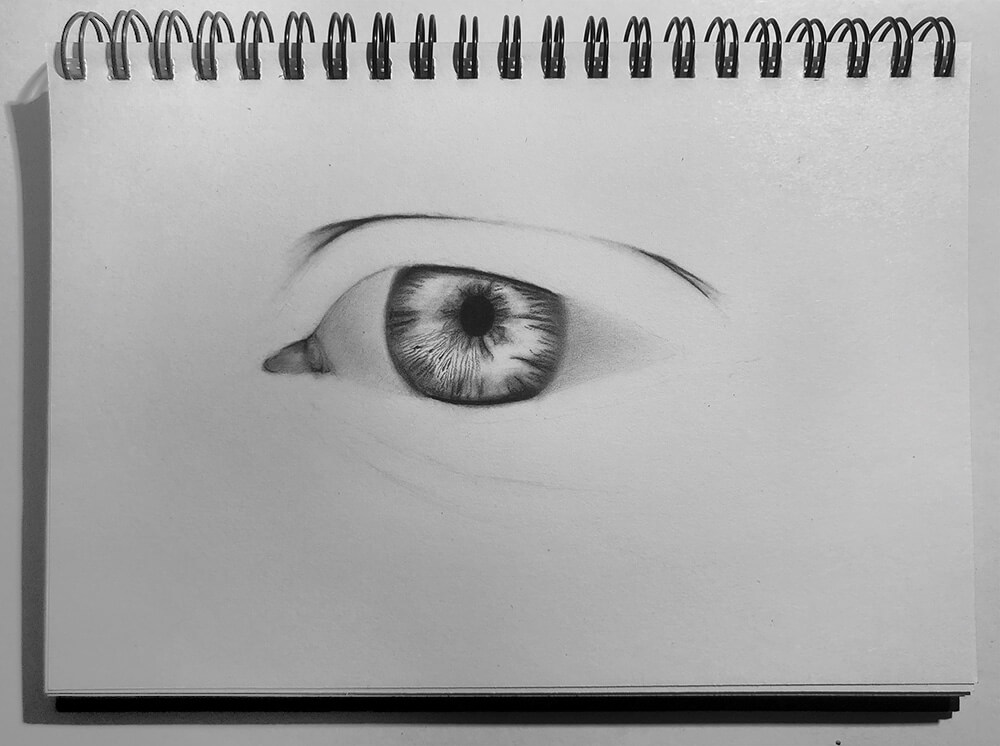
Step 7: Draw in the iris.
To fill in the iris I draw different kinds of lines (like spokes) extending out from the pupil—some squiggly lines, some that extend all the way to the edge of the iris and some that start and stop in random places.
I fill up the majority of the space with those lines and add some black spots. There's not really a "formula" for doing this—all eyes are unique and have little irregularities and that's what makes them so fun and interesting to draw.
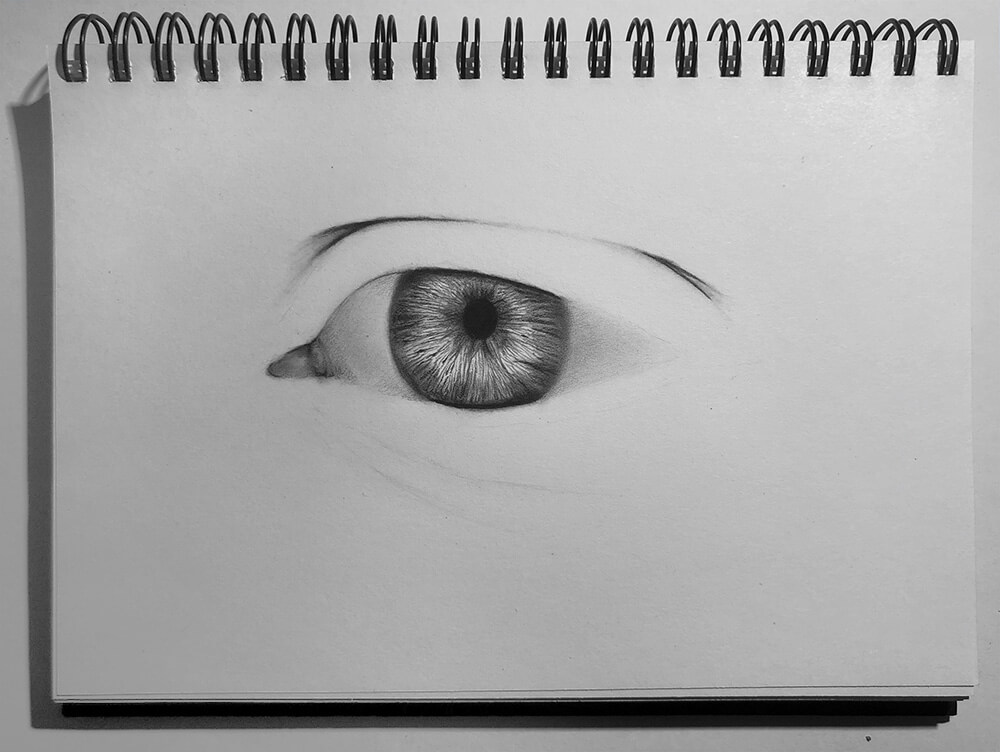
Step 8: Shade the skin.
Then I lay down a base shade for the skin. Start light with an HB pencil.
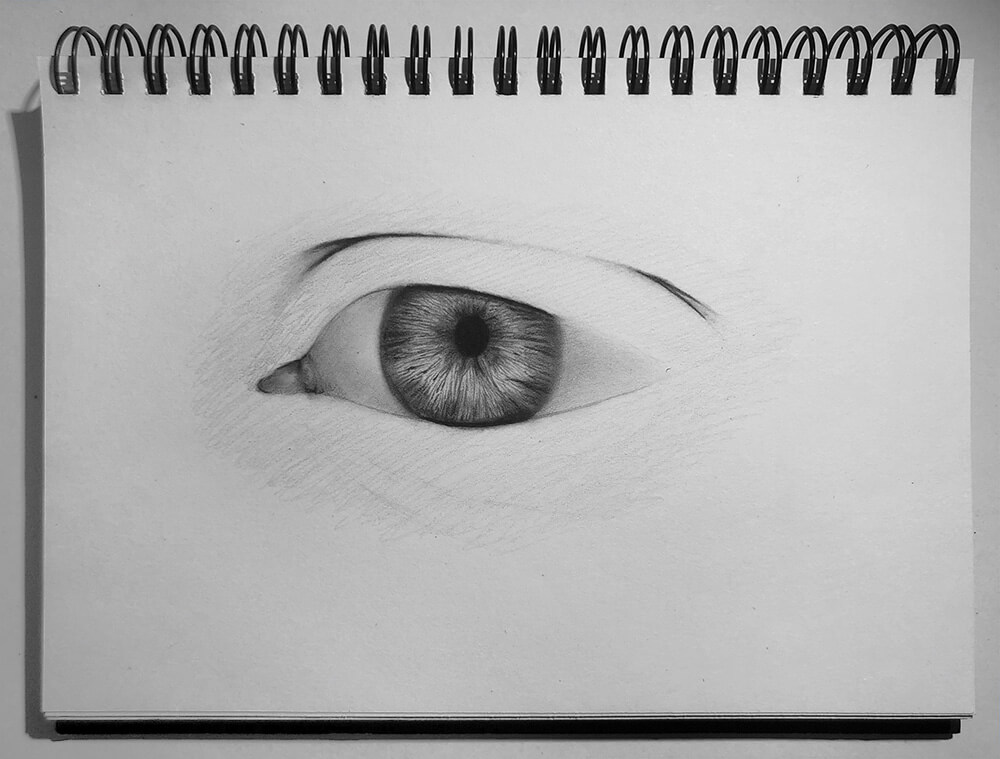
Next, I'll establish some shadows using a 4B pencil—deepening the eyelid crease, the shadow at the edge of the eye and eye bags.
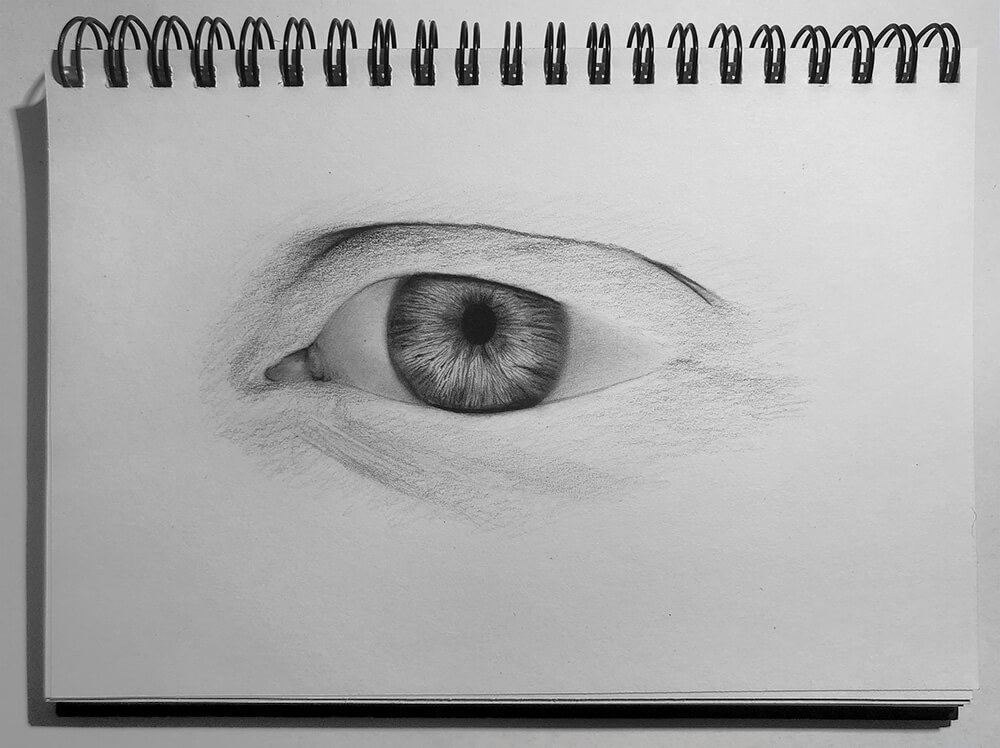
Here, I've blended the shadows with a brush You could also use a tissue or cotton bud.
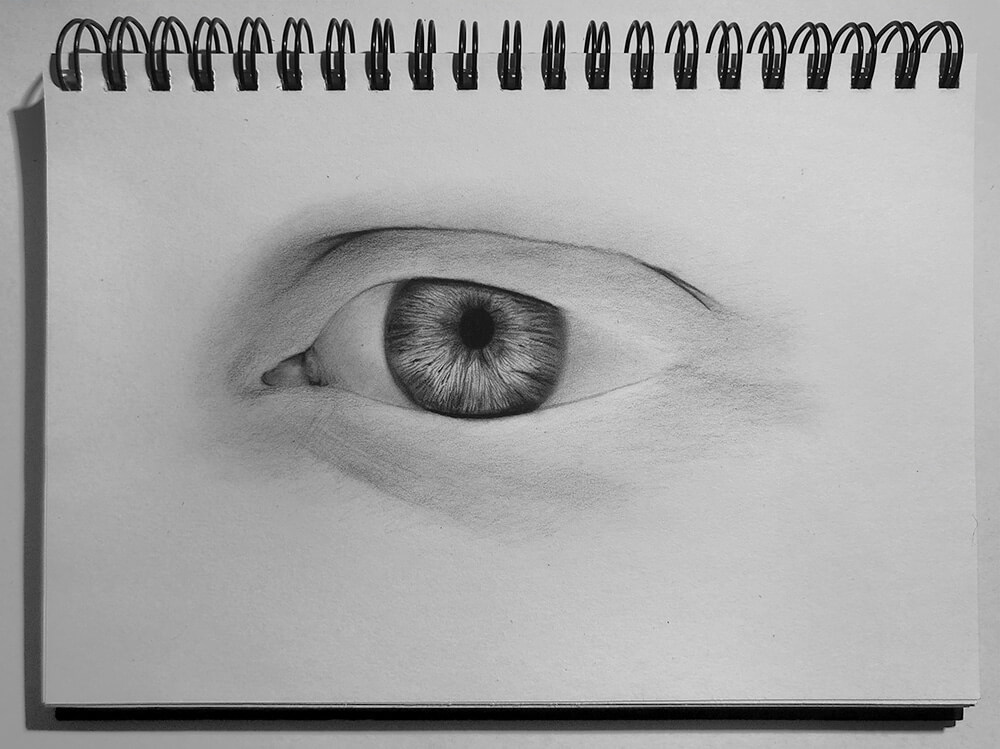
Then I establish the top and bottom water lines with a slightly darker shade and blend.
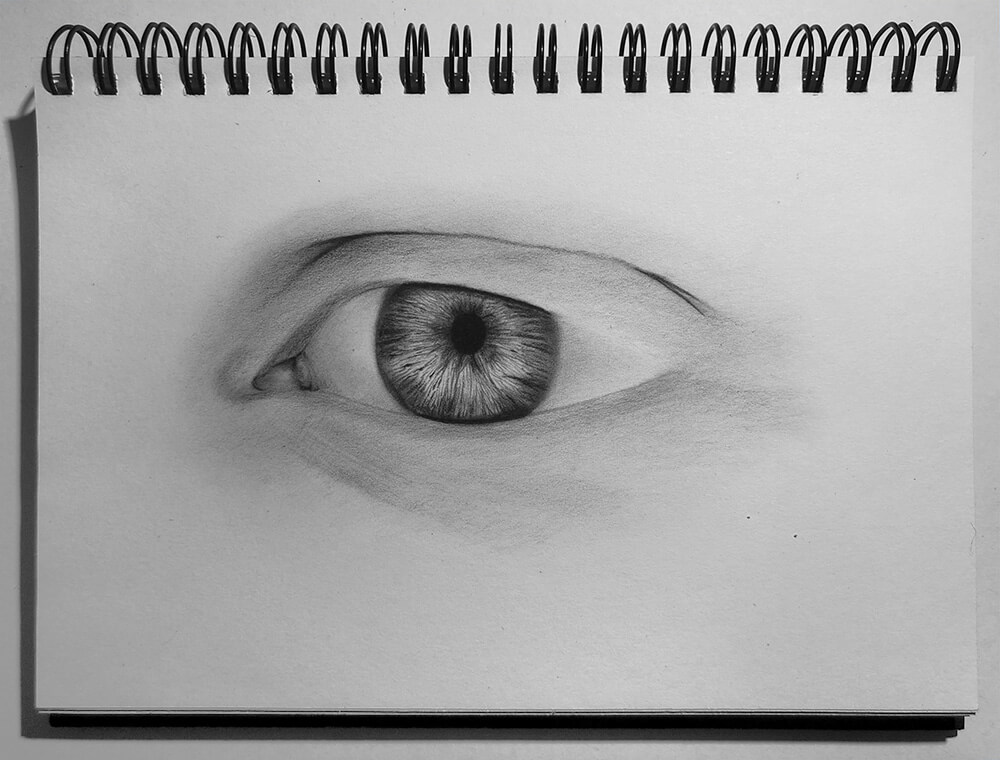
Step 9: Draw the eyelashes.
For the eyelashes, I use a 4B pencil. To create the eyelashes, start at the root and "flick" your pencil lead off the page as you draw so that the eyelash is thinnest at the tip and thickest at the root.
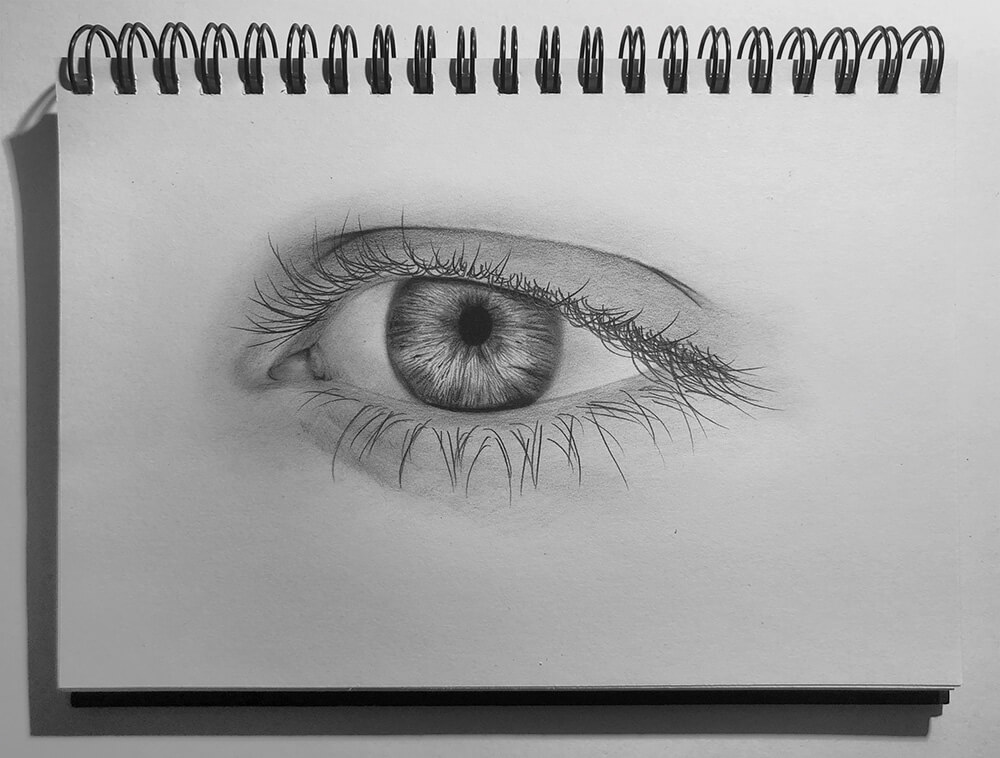
Direction is also important—eyelashes don't all go in the same direction; some are random but for the most part, they follow a pattern. In this case, the top lashes curve up towards the left and as you go towards the edge of the eye will begin to curve up towards the right.
Step 10: Add skin texture and highlights.
Then I like to create some skin texture and highlights using a Tombow Mono Zero eraser. I add highlights to the eyelid and tear duct area where the light naturally hits.
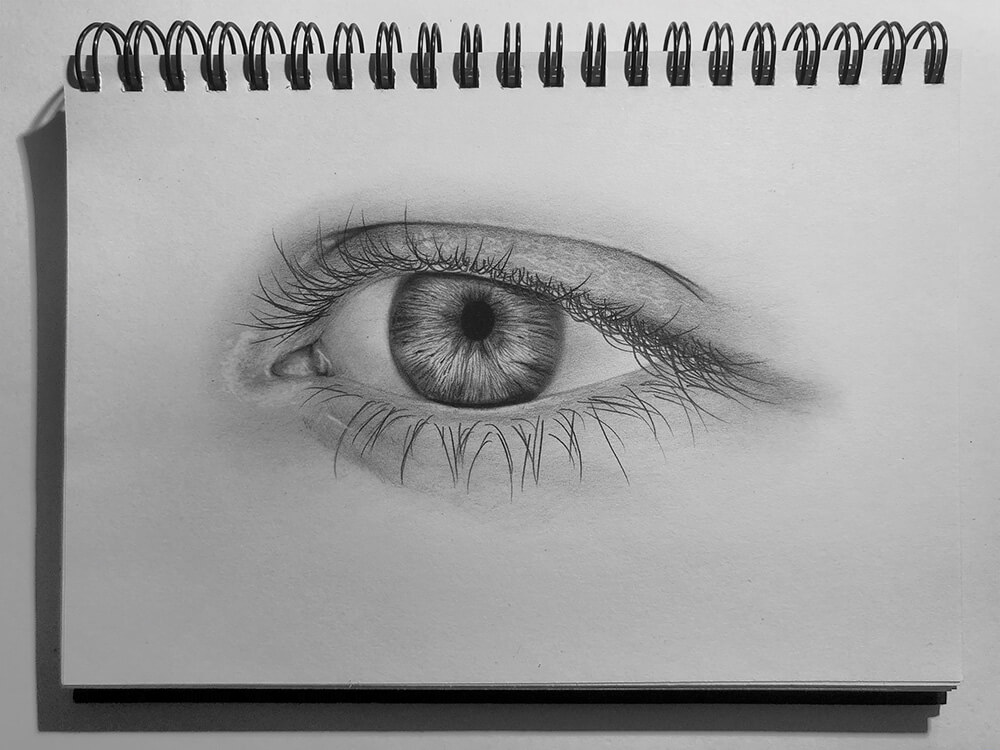
And finally, I add the brightest highlights using a white Posca paint pen. This step usually takes the drawing from "normal" to very realistic.
I focus on the eyelid and the tear duct and add reflections on the iris. I use a stippling technique around the tear duct and on the skin to resemble the look of skin and its little bumps and reflections.
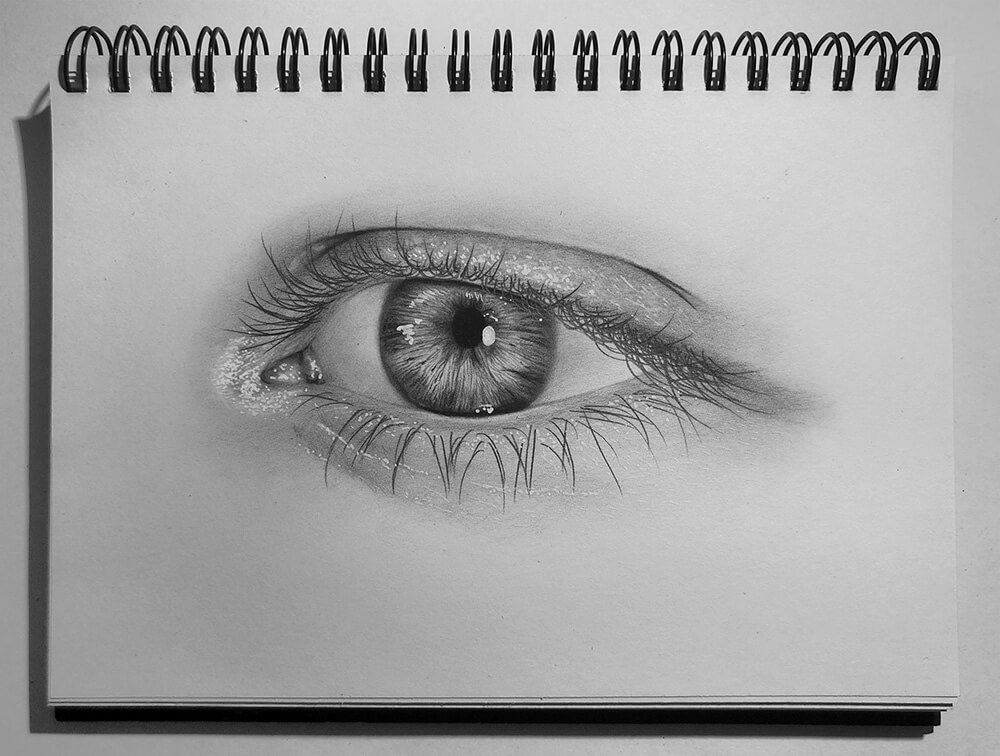
I hope you've enjoyed this tutorial. . . don't forget to sign up to be notified when the full video tutorial is ready!
Special thanks to Sam Cooper (@justsomedrawingzz) for sharing this tutorial! To see more amazing drawings by Sam, please visit instagram.com/justsomedrawingzz.

This post may contain affiliate links.
Source: https://emptyeasel.com/2019/08/27/how-to-draw-a-realistic-eye-a-step-by-step-tutorial/
0 Response to "Realistic Eye Drawing Step by Step Easy"
Post a Comment